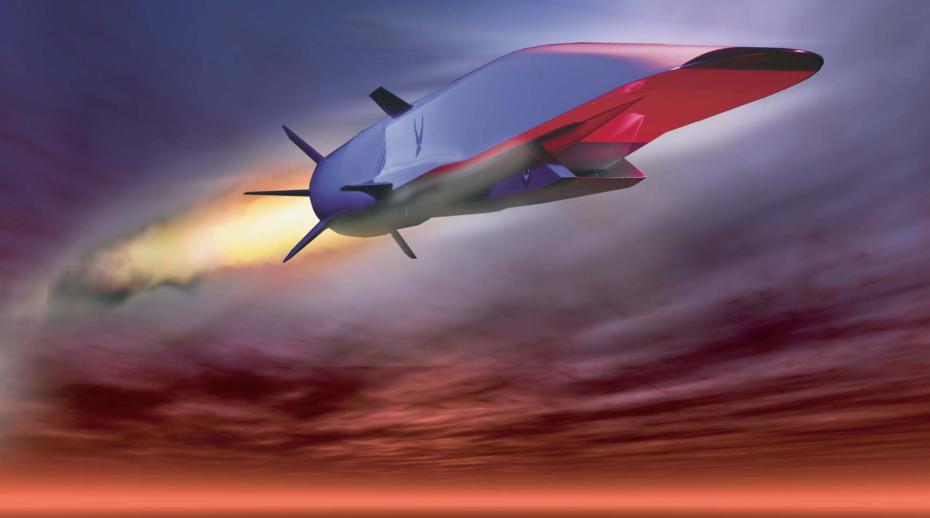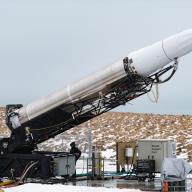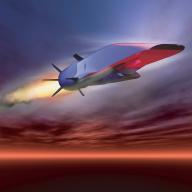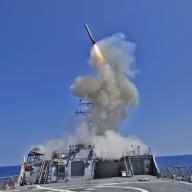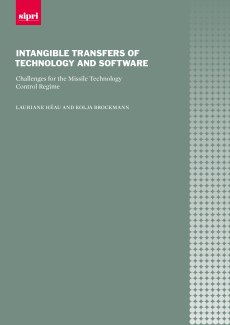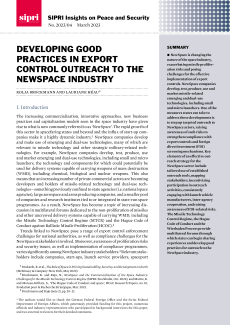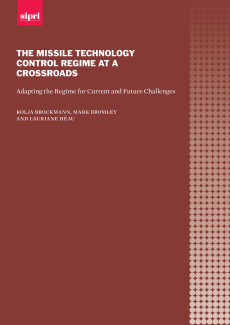Missile non-proliferation
Missiles are both a potent conventional weapon system and a delivery system for nuclear, biological and chemical weapons. Rocket technology is dual use as it has potential applications in the development of both military missiles and civilian space launch vehicles. There is no agreement that generally bans the development, transfer or use of missiles. However, states have agreed various arms control and non-proliferation instruments to reduce the risk of missiles and transfers of related technology contributing to nuclear, biological and chemical weapons programmes or threatening international security and stability.
The Missile Technology Control Regime (MTCR) and the Hague Code of Conduct against Ballistic Missile Proliferation (HCOC) are cornerstones of the current missile non-proliferation regime. The MTCR is the main multilateral export control regime concerned with missiles and other uncrewed delivery systems, while the HCOC establishes a set of transparency and confidence-building measures for participating states. Trends in missile technology, including an increased focus on hypersonic boost-glide systems and the spread of relevant dual-use technology through the NewSpace industry, mean that missile non-proliferation and arms control instruments need to monitor and adapt to ensure their continued relevance and effectiveness.
SIPRI’s research focuses on how technological, industrial and political trends can contribute to missile proliferation risks and pose challenges to missile non-proliferation and arms control instruments. As part of this work, SIPRI explores how the MTCR, the HCOC and potential future instruments can adapt to these challenges.
